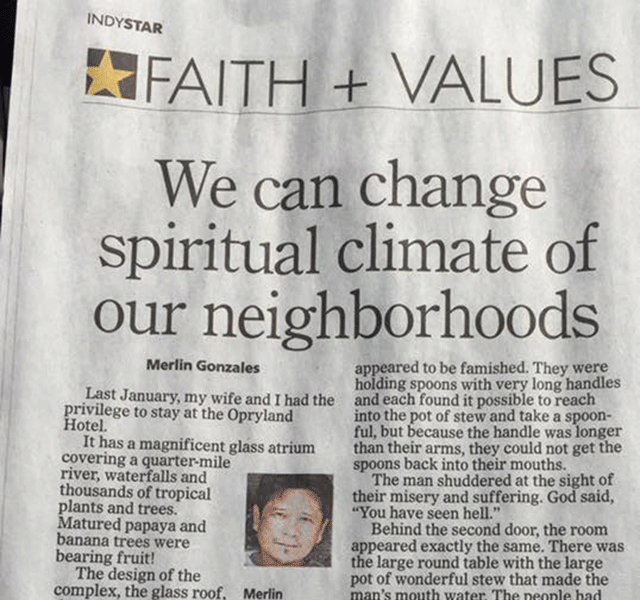In an era beset by unparalleled climatic upheaval, the Bahá’í teachings offer a profound lens through which to navigate the intricate relationship between climate change and our spiritual responsibilities. Within the vibrant tapestry of Bahá’í belief, the idea that humanity’s spiritual evolution is intertwined with the stewardship of the Earth provides a compelling framework that pushes the boundaries of conventional environmental discourse. As we unravel this complex interplay, it becomes increasingly evident that spiritual fervor synergistically fuels our ethical obligations toward environmental sustainability.
The Bahá’í Faith posits that the spiritual and material realms are inextricably linked. This connection cultivates a holistic understanding of climate change as not merely a technological or scientific predicament but fundamentally a moral imperative. The teachings accentuate the principle of ‘Unity of Humanity,’ whereby the well-being of one is contingent upon the well-being of all. Consequently, the ramifications of climate change—rising sea levels, devastating hurricanes, and erratic weather patterns—affect not only the physical environment but permeate the very fabric of human existence and social structures.
Consider the metaphor of the garden, as depicted in the Bahá’í literature. Just as a garden flourishes under the care of its steward, so too does the Earth thrive under our vigilant guardianship. The delicate balance of this garden is threatened when neglect occurs. In the same vein, a failure to address climate change represents a profound dereliction of duty to the global garden that sustains us. The consequences of such negligence reverberate through every community, resonating with the underlying principle that we are all interlinked—each one of us a vital thread in the tapestry of existence.
One of the cardinal teachings of the Bahá’í Faith is the concept of individual responsibility. Every Bahá’í is urged to engage actively in the betterment of the world, which includes environmental stewardship. This extends beyond mere advocacy for sustainable practices; it requires a transformative approach to lifestyle choices. The call is to embrace sustainability not as an ancillary endeavor but as a crucial aspect of spiritual development. By cultivating harmonious relationships with the environment, individuals exemplify the virtues of care, compassion, and responsibility—principles that the Bahá’í teachings hold dear.
Moreover, the Bahá’í writings emphasize the importance of education in fostering ecological consciousness. As knowledge is seen as a catalyst for personal and communal transformation, the Bahá’í community endeavors to inculcate an understanding of environmental matters among its members. This educational initiative is pivotal, for it lays the foundation for informed decision-making and fosters a sense of collective ownership. It is not enough to acknowledge the existence of climate issues; one must delve into the intricacies of their causation and manifestation. Here, the synthesis of scientific understanding and spiritual insight is vital.
Further, the Bahá’í perspective invites us to reflect on the consequences of our material consumption. The excessive exploitation of natural resources and the resulting harm inflicted on the planet are symptomatic of a deeper spiritual malaise characterized by detachment from communal and environmental responsibilities. Bahá’í teachings advocate for moderation and frugality, espousing a lifestyle that respects the delicate balances of global ecosystems. A metaphorical ‘earthly wealth’ is not found in material accumulation but in the cultivation of sustainable practices that reverberate with the values of compassion and stewardship.
Compounding the urgency of climate action is the Bahá’í commitment to justice. The beautiful interdependence of humanity means that climate change disproportionately affects the marginalized and vulnerable. The disenfranchised often lack the resources and capacity to adapt to environmental challenges, resulting in a cycle of poverty exacerbated by climate crises. In this light, Bahá’ís are called to advocate for social justice as an integral component of environmental action, ensuring that equity and fairness guide global responses to climate change. The metaphor of the ‘rising tide’ becomes pertinent; as the tide of climate adversity rises, it is imperative that we lift all boats, particularly those most at risk.
Another noteworthy dimension within the Bahá’í framework is the notion of collective action. The unity of purpose among diverse peoples is emphasized as both a necessity and a moral obligation. The Bahá’í community consistently collaborates with interfaith and secular organizations to address the challenges posed by climate change. This spirit of cooperation mirrors the larger cosmic order—wherein various elements function as a unified whole—signifying that only through collaborative endeavors can humanity foster genuine solutions to the climate crisis.
Finally, we must acknowledge that our spiritual journey is infinitely enriched when we commit to aligning our lives with the principle of environmental stewardship. Each conscious effort we make to combat climate change reverberates through the annals of time, shaping not only our present but also the future for generations yet unborn. The teachings of the Bahá’í Faith encourage us to elevate our consciousness, fostering a deeper understanding of our purpose within the cosmos, and illuminating the path toward a sustainable future grounded in spiritual responsibility.
In conclusion, the synthesis of Bahá’í teachings and the pressing realities of climate change necessitates a radical rethinking of our relationship with both the Earth and one another. As we gravitate toward spiritual enlightenment through the imperative of environmental stewardship, we not only embrace our role as custodians of the planet but also journey toward our collective destiny—one where humanity thrives in harmony with the sacred rhythms of nature.
